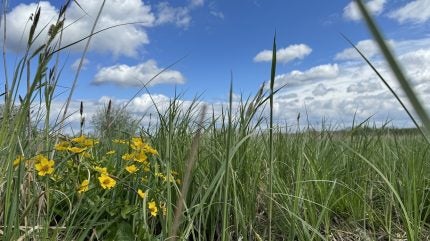
Finnish label material company UPM Raflatac and World Wide Fund for Nature (WWF) Poland have renewed their contract for three years to promote circular economy initiatives and support privately protected areas, focusing on wetlands habitats in Poland.
UPM Raflatac will also strengthen engagement and support from internal and external stakeholders for these initiatives.
The circular project in the country seeks to mitigate the volume of packaging waste that contaminates the environment by managing it via circular economy principles.
Meanwhile, public awareness will be enhanced regarding green solutions that support the circular economy and strategies to reduce plastic pollution in Poland.
UPM Raflatac sustainability development director Vera Bartsch said: “As part of the packaging value chain, we are constantly looking for ways to promote [the] circular economy not only through our product and service offering, but also through collaboration.
“We are also committed to climate-positive forestry and enhancing biodiversity as well as sharing our expertise and assets with the communities in which we operate.”
With the support of UPM Raflatac, WWF Poland plans to expand its network of privately protected areas by acquiring new territories and implementing additional conservation measures such as mowing, animal grazing, scrub clearance, and water regime adjustments.
WWF Poland strategic partnerships department director Barbara Skuła-Dąbek said: “The circular economy plays a critical role in reducing waste and protecting natural resources. Privately protected areas, such as wetlands, are crucial for preserving biodiversity and maintaining ecosystems.
“With UPM Raflatac’s help, we can address nature-related challenges and promote sustainable development in Poland. We have been successfully working together to protect nature for 12 years.”
In Poland, UPM Raflatac operates two factories located in Biskupice Podgórne and Nowa Wieś Wrocławska, employing a workforce of 600 individuals in total.
The two parties initially collaborated in 2012 with the ‘Rivers for life’ project focused on safeguarding river biodiversity in the country.
This collaboration evolved with the development of the ‘River Guardians’ programme.
Throughout past contract periods, circular economy practices and support for conservation have increasingly become focal points of their joint efforts.



